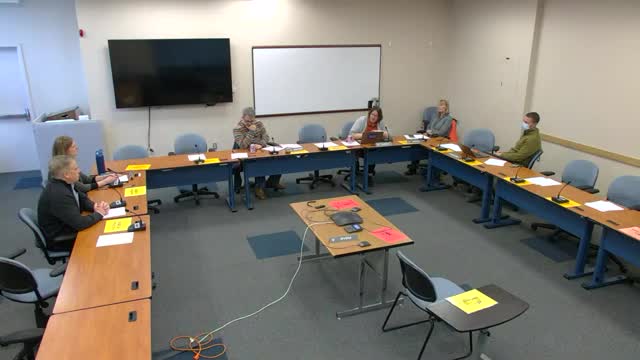Assembly schedules confirmation hearing for Greg Soleil as Anchorage development services director

Summary
The Anchorage Assembly set a confirmation hearing for Greg Soleil, the acting Development Services Director, after a Feb. 21 work session in which Soleil outlined priorities including improving permitting, staff retention and new online permitting software.
The Anchorage Assembly on Feb. 21 scheduled a confirmation hearing for Greg Soleil, the acting Development Services Director and the administration’s nominee to serve as Development Services Director and municipal building official for the Municipality of Anchorage.
Becky Woodpearson, presenting on behalf of the mayor, described Soleil as “an outstanding candidate for this role,” saying he has served as acting director since May 2021 and oversees building-official responsibilities across six divisions and roughly 70 employees.
The position drew extended questioning from assembly members focused on permitting delays, customer service and the balance between enforcing building codes and allowing reuse of older buildings. Soleil described several priorities if confirmed: staff retention and training at permit counters, consolidating guidance materials, improving plan-review coordination with inspectors, and replacing aging permitting software.
Soleil, who identified himself as the acting Development Services Director, said he is a licensed civil engineer with “more than 26 years of structural, geotechnical, and transportation engineering experience,” and that he holds a civil engineering degree from the University of Colorado at Boulder and an Arctic engineering degree from the University of Alaska Anchorage. “I have been acting in this role for just about 3 years, and it's given me a lot of time and perspective to kinda grow into the role and learn all the moving parts of my department,” he said.
Assembly members pressed Soleil on specific reforms. Assemblymember Anna Brawley asked how he would reconcile flexibility for reusing older buildings with adherence to safety codes; Soleil said the department does not require full retrofits to current codes for typical renovations but that change-of-use projects that increase risk — for example converting a fourplex to an assisted‑living facility — would require upgrades such as fire suppression and accessibility improvements.
On permitting, Soleil pointed to high turnover at the permit counter and inconsistent information given to applicants as major pain points. He told the Assembly that the department previously attempted an online permitting portal that failed to integrate with payment systems. “We spent, I don't know, untold hundreds of man hours trying to implement this, lots of money, and it just was not able to work,” he said. He described the current software stack as two older systems (Infor and ePlans) that do not communicate, and said the department has since evaluated multiple vendors for a single, Bluebeam‑based solution that would allow applicants to upload plans, receive notifications of corrections, and pay online. Soleil estimated a full rollout could take “probably 2 years on the outside to be fully up and running.”
Assemblymember Cameron Perez asked whether the department sees itself as an impediment to development; Soleil said some pain points can be fixed, but noted revenue needs and past policy choices. He said the department tried a 20% fee reduction during COVID and delayed adopting the latest ICC fee tables to avoid fee increases. “If we lower permit fees or waive permit fees, we'll incentivize development,” he said, but added that permit fees are unlikely to stop large multifamily projects.
Several assembly members raised ideas to improve customer service, including the concept of a “permit concierge” to help applicants navigate planning and permitting steps. Soleil said permit facilitators already exist in the market and that the department informally performs some of that work; he said formalizing a concierge role is an idea under consideration.
Soleil described the municipal arrangement as currently a combined executive appointment that includes the codified building official and other technical roles (municipal engineer, traffic engineer). He said he relies heavily on Daniel King, the engineering services manager, who handles code‑technical work, and that the administration envisions the appointment as a combined role but remains open to future structural changes.
On the preapproved plans program discussed in prior work sessions, Soleil said the initial RFP drew no respondents; the effort was scaled down to accessory dwelling units (ADUs) and has since received one respondent as the department seeks additional proposals.
The work session ended without a confirmation vote. The Assembly chair said Soleil’s confirmation hearing will be held Tuesday and that the clerk will coordinate scheduling details; Soleil told the Assembly he will be out of town for the hearing. No formal vote or appointment was taken during the Feb. 21 work session.
Soleil and assembly members emphasized that improving permitting efficiency, customer service and plan-review consistency are priorities, and the Assembly will consider his nomination at the upcoming confirmation hearing.

